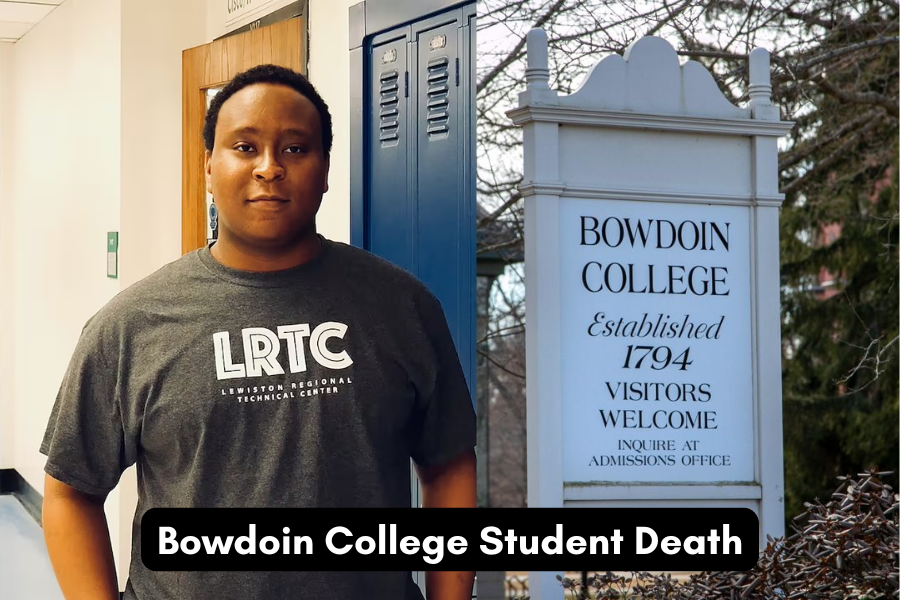
Bowdoin College Student Death
The Bowdoin College community is grieving the sudden death of one of its students, an event that has cast a somber mood over the campus and sparked important discussions surrounding mental health, campus resources, and the immense pressures many college students face today. This heartbreaking tragedy involving the loss of a promising young individual underscores the urgent need for schools to focus on mental health and well-being.
This article seeks to approach the Bowdoin College student death with both empathy and information, shedding light on what is known about the event, discussing available mental health resources, and stressing the importance of community support in such trying times.
The Bowdoin College Student Death: Key Details
The Bowdoin College student death has left a profound impact on the small, closely knit college community. According to law enforcement reports, the student was identified as Qingyang Zhan, a 20-year-old sophomore. Tragically, Zhan’s body was discovered in Topsham, Maine, on a Sunday, and authorities confirmed that the cause of death was suicide.
Zhan’s passing is not only a deep personal loss for his family and friends but also a stark reminder of the emotional struggles that many young people face. As students balance academic pressures, social expectations, and personal hardships, the risk of mental health challenges, including crises, continues to grow.
College Life and Mental Health Struggles
University years are often viewed as an exciting and transformative time in a person’s life, full of opportunities for personal growth. However, it is also a period filled with immense pressure. According to the American College Health Association (ACHA), mental health issues such as anxiety, depression, and feelings of isolation are becoming more prevalent among college students.
The tragic Bowdoin College student death emphasizes the critical need to prioritize mental health care within colleges. Establishing a supportive environment where students feel safe to seek assistance is essential for preventing such devastating losses.
Contributing Factors to Mental Health Challenges
Various elements can heighten mental health difficulties among college students, making it essential to address them in meaningful ways.
- Academic Pressure: Many students feel overwhelmed by the demanding coursework and strive for high academic achievement, which can lead to stress and burnout.
- Social Isolation: Despite the opportunity for social engagement, many students experience loneliness or a sense of disconnection from others.
- Transition Struggles: The challenges of adjusting to life away from home, taking on new responsibilities, and navigating unfamiliar environments can contribute to stress.
- Mental Health Stigma: Although awareness around mental health is growing, some students may still hesitate to seek help due to concerns about stigma or being judged.
Bowdoin College’s Response to the Loss
Following the Bowdoin College student death, the college administration expressed profound sorrow and sympathy to Qingyang Zhan’s family, friends, and the wider campus community. Acknowledging the importance of offering support, the college has ensured that counseling and mental health services are readily available for students, faculty, and staff.
Bowdoin College President Clayton Rose issued a heartfelt message, highlighting the importance of community solidarity and emphasizing that help is available for those facing similar struggles. “We are here to support each other,” Rose said, reaffirming the college’s dedication to creating a compassionate and understanding environment for all members of the community.
Addressing Suicide Prevention Among Young Adults
Suicide remains one of the leading causes of death among young adults, underscoring the importance of preventive measures. Data from the Centers for Disease Control and Prevention (CDC) indicates that suicide rates among individuals aged 15-24 have been steadily rising, necessitating a more proactive approach to prevention.
Essential Strategies for Suicide Prevention:
- Raising Awareness About Mental Health: Schools should work toward normalizing discussions on mental health, reducing stigma, and encouraging students to reach out for help when needed.
- Improving Access to Resources: Providing easily accessible, confidential counseling, peer support groups, and crisis intervention services is critical for addressing mental health challenges.
- Training Educators and Staff: Faculty and administrators should be equipped with the knowledge to recognize signs of distress and respond appropriately.
- Creating a Supportive Atmosphere: Building a strong sense of community and belonging on campus can help foster emotional well-being and prevent isolation.
Offering Support During Difficult Times
In light of the Bowdoin College student death, it is vital to reflect on how institutions, families, and peers can better support students through their struggles. While large-scale institutional changes are important, individual actions can also make a meaningful difference in the lives of young people.
How Family and Friends Can Offer Support:
- Encourage Open Dialogue: Establish a trusting and non-judgmental environment where students feel comfortable sharing their thoughts and feelings.
- Be Attentive: Watch for any noticeable shifts in behavior, mood, or habits that may indicate emotional distress.
- Provide Emotional Support: Sometimes, simply offering a listening ear and emotional comfort can be more helpful than trying to solve the problem.
- Recommend Professional Help: If a loved one is experiencing emotional difficulties, gently encourage them to seek guidance from a counselor or therapist.
Mental Health Resources Available to Students
For individuals who may be facing emotional challenges, numerous resources are available to help:
- National Suicide Prevention Lifeline: Dial 988 for immediate support
- Crisis Text Line: Text HOME to 741741 for confidential crisis support
- Bowdoin College Counseling Services: On-campus mental health services are available to students
- Local Mental Health Agencies: Community-based organizations offer additional resources and support
Moving Forward: Building a More Supportive Community
The Bowdoin College student death serves as a powerful reminder of the importance of addressing mental health and offering support during times of crisis. Although the loss of Qingyang Zhan is deeply saddening, it also calls for a collective effort from institutions, families, and individuals to create a culture of care, compassion, and understanding.
By working together to tackle mental health challenges and eliminating the barriers to seeking help, we can honor those we have lost and ensure that future students have the resources and support they need to succeed and thrive.
Key Facts
- Student Identity: The Bowdoin College student who tragically passed away was identified as Qingyang Zhan, a 20-year-old sophomore at the college.
- Date and Location of Death: Qingyang Zhan’s body was found in Topsham, Maine, on a Sunday. Authorities confirmed the cause of death as suicide.
- Impact on the Community: His death has deeply affected the Bowdoin College community, sparking conversations about mental health, the pressures students face, and the need for better support systems in educational settings.
- Mental Health Awareness: The incident highlights the ongoing issue of mental health struggles among college students, including the impact of academic pressure, social isolation, and personal challenges.
- College’s Response: Bowdoin College has expressed sorrow, extended condolences, and made counseling and mental health resources available for students, faculty, and staff.
- Suicide Prevention: The tragic event has renewed calls for stronger suicide prevention programs, greater mental health support, and increased awareness of mental health issues within academic environments.
Final Reflections
The tragic Bowdoin College student death has left an indelible mark on the community, underscoring the fragility of life and the vital need for mental health awareness. As we mourn this loss, let us also commit to fostering an environment where no student has to face their struggles alone.
If you or someone you know is dealing with mental health concerns, reach out for help. Don’t hesitate to speak up, offer support, and remind others that they are not alone in their journey.
FAQs
1. What happened in the Bowdoin College student death?
The Bowdoin College student, Qingyang Zhan, was found dead in Topsham, Maine. Local authorities confirmed the cause of death as suicide. This has prompted a focus on mental health issues within the college and broader academic community.
2. Who was the student involved in the Bowdoin College student death?
The student who passed away was Qingyang Zhan, a 20-year-old sophomore at Bowdoin College. His death has left a lasting impact on both his friends and the college community.
3. What is the cause of the Bowdoin College student death?
The Bowdoin College student death was confirmed as a suicide by local authorities. His passing has drawn attention to the mental health challenges faced by many college students.
4. How has Bowdoin College responded to the student death?
Bowdoin College has expressed deep sympathy for the loss, extended condolences to the student’s family, and made mental health support resources available for students, faculty, and staff during this difficult time.
5. What role does mental health play in the Bowdoin College student death?
The tragic event highlights the significant mental health challenges many college students face, such as academic pressures, isolation, and emotional distress. The Bowdoin College student death has prompted further discussions on the need for better mental health resources on campus.
6. What steps are being taken to prevent similar incidents in the future?
In response to this tragedy, there has been increased emphasis on suicide prevention programs, enhancing mental health services, and fostering a more supportive community at Bowdoin College to better address student well-being.
7. What are the mental health resources available at Bowdoin College?
Bowdoin College offers counseling services to students and provides access to mental health resources to help manage stress, anxiety, and other challenges students might face. The college has committed to ensuring these resources are easily accessible to the entire campus community.
8. How can students at Bowdoin College seek help with mental health issues?
Students can access counseling services through Bowdoin College’s on-campus resources. Additionally, the college encourages open conversations about mental health and has initiatives in place to reduce stigma around seeking help.
9. How can friends and family support those struggling with mental health issues?
Encouraging open conversations, being observant for signs of distress, offering emotional support, and encouraging professional help are key ways friends and family can assist loved ones facing mental health challenges.
10. What is the importance of mental health awareness in educational institutions?
The Bowdoin College student death underscores the need for greater mental health awareness in schools. By creating an environment where students feel safe discussing mental health and seeking help, colleges can better support students in managing emotional challenges.
Discover the latest news and updates on The Blog Verge






